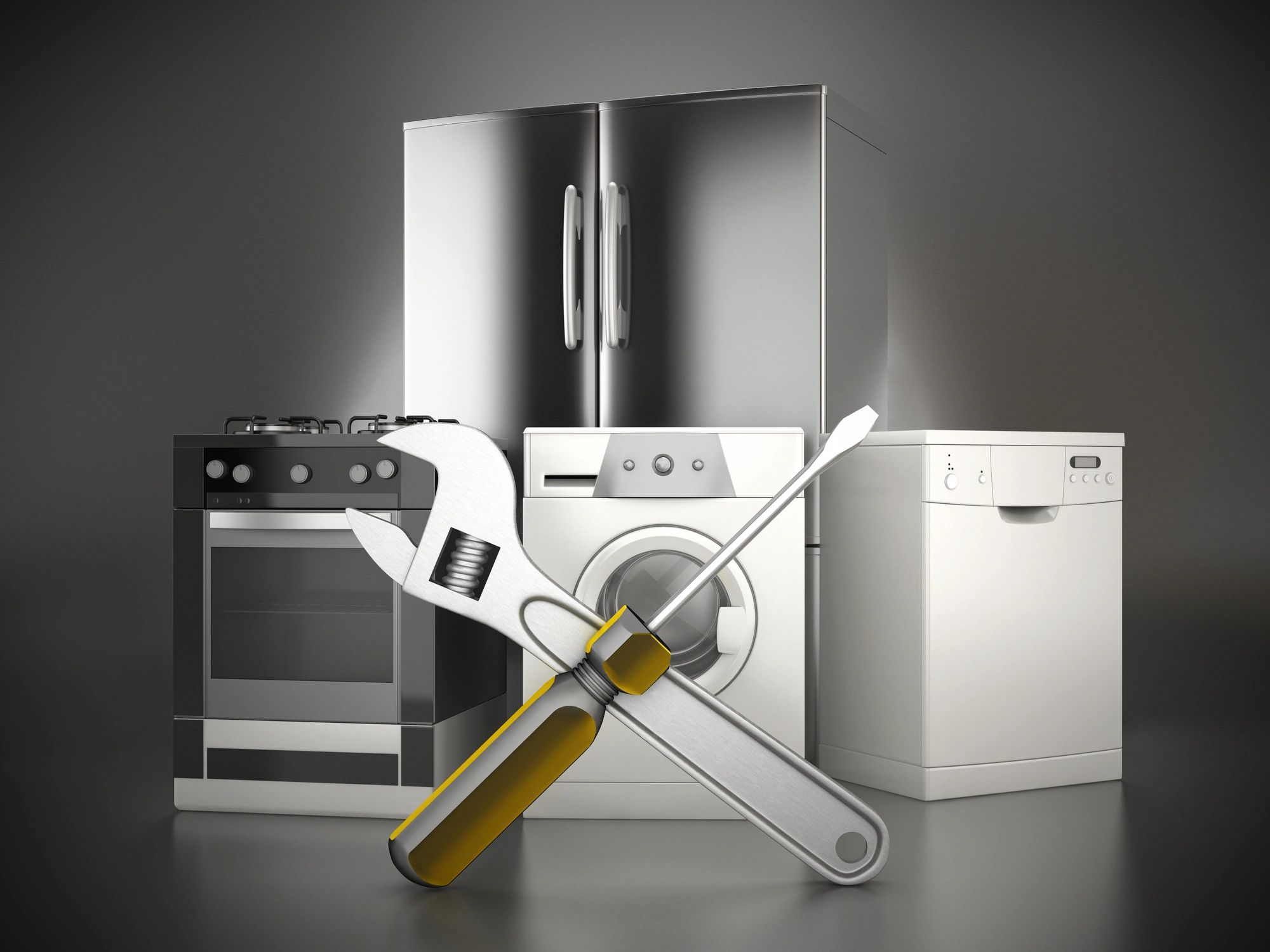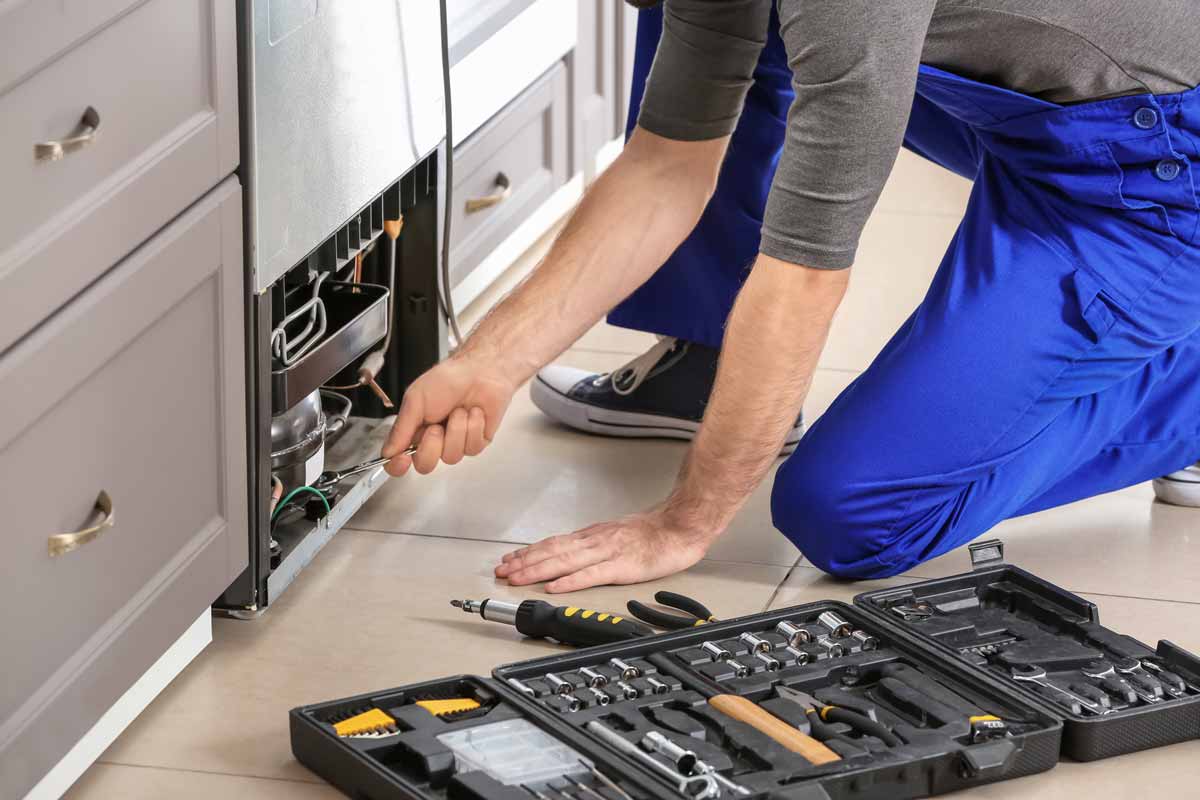The Ultimate Guide to Understanding Device Repair Service in the house
When your fridge stops cooling down or your stove declines to warm, it can feel frustrating. Recognizing appliance repair at home can save you money and time. You'll discover to recognize symptoms, make use of vital devices, and follow a methodical troubleshooting process. Prior to you begin, there are essential safety preventative measures you need to take right into account. What are the most usual issues, and exactly how can you fix them? Allow's explore the basics.
Typical Appliance Troubles and Their Signs
When your appliances begin breaking down, it's necessary to recognize the indications beforehand. Disregarding them can lead to bigger issues and pricey repair services. If your refrigerator isn't cooling appropriately, you might discover warm areas or condensation forming. This might show a stopping working compressor or a blocked vent.Your dishwasher may reveal troubles with dirty recipes or unusual noises during cycles. If you listen to grinding or clanking, it's time to investigate.A cleaning device that will not rotate or drain pipes can leave you with soggy laundry, suggesting a clogged up drainpipe or a malfunctioning pump.Lastly, if your stove's temperature seems off or it takes for life to preheat, you may be taking care of a malfunctioning thermostat. By remaining sharp to these symptoms, you can attend to problems prior to they intensify right into significant fixings.
Vital Tools for Device Repair
When you're tackling home appliance repair services in the house, having the right devices is important. Basic hand devices like screwdrivers and pliers will assist you disassemble and take care of different appliances, while electric screening gadgets ensure you're functioning securely with circuitry. Let's review what you require to start on your repair journey.
Basic Hand Tools
Having the right tools is necessary for efficient home appliance repair in your home. Start with a reliable screwdriver collection, including both flathead and Phillips kinds, as screws are common in home appliance setting up. Pliers are additionally crucial; they assist with gripping, turning, and reducing wires or tiny parts. A set of needle-nose pliers can get to difficult situations quickly. You'll require an excellent adjustable wrench for tightening up or loosening nuts and bolts. An energy blade comes in handy for cutting with product packaging or insulation. Don't fail to remember a strong workbench or surface area to safely organize your devices and components. With these fundamental hand devices, you'll be well-prepared to deal with most device repairs that come your way.
Electric Screening Instruments
Alongside standard hand tools, electrical screening gadgets play a necessary role in appliance repair work. These devices aid you detect electrical concerns and guarantee home appliances work safely. A multimeter is crucial; it gauges voltage, present, and resistance, enabling you to pinpoint troubles promptly. A non-contact voltage tester is one more essential, allowing you detect real-time cords without making straight contact, enhancing your security. Secure meters are terrific for gauging existing flow in wires without separating them, conserving you effort and time. Additionally, circuit testers can swiftly examine if outlets are functioning effectively. By using these gadgets, you'll simplify your troubleshooting process and improve your repair abilities, making appliance maintenance a great deal simpler.
Step-by-Step Guide to Diagnosing Home Appliance Issues
When your home appliance breaks down, it can be discouraging, however identifying the issue does not have to be frustrating. You'll discover to determine typical issues and apply efficient repairing strategies. Allow's walk via the steps to obtain your appliance back in working order.
Typical Appliance Issues

Fixing Techniques Clarified

Repairing Major Kitchen Appliances: A Closer Look
Have you ever before questioned exactly how to deal with common concerns with your kitchen area appliances? Repairing significant cooking area home appliances like fridges, ovens, and dishwashers can be less complicated than you assume. Start by determining the problem-- whether it's a fridge not cooling down or an oven that will not warm. Frequently, a simple reset or inspecting the power resource can solve the issue.For refrigerators, clean the condenser coils and inspect the door seals. If your oven's not heating, evaluate the burner and thermostat. Dishwashing machines might simply require a clean filter or a reset to get them back at work. Always disconnect the home appliance before diving right into repair work to assure your safety.Don' t fail to remember to consult the individual guidebook for particular troubleshooting suggestions connected to your model. With a little bit of persistence and the right devices, you can with confidence tackle home appliance repair work and save cash while doing so!

Repairing Washing Appliances: Tips and Techniques
When your washing devices start breaking down, it can really feel frustrating, yet repairing them doesn't have to be an inconvenience. Beginning by inspecting the power supply. Verify the appliance is connected in and the outlet is operating. Next off, inspect the door or lid switch; a damaged switch can avoid the device from operating.For washers, if it's not spinning, examine for unbalanced tons. Redistributing the garments may solve the concern. If your dryer isn't home heating, clean the lint filter and inspect the vent for blockages.Listen for unusual noises; they can show a problem. If your home appliance is dripping, examine the hoses for fractures or loose links. File any kind of error codes presented on digital displays, as they can lead you in identifying the issue. Lastly, seek advice from the customer manual for specific troubleshooting suggestions related to your model.
Safety Preventative Measures to Take Throughout Repairs
Prior to you start any type of home appliance repair services, it's necessary to focus on safety and security to prevent crashes or injuries. Unplug the device or turn off the circuit breaker to guarantee no power reaches it while you work. Use insulated devices to reduce the risk of electrical shock. Wear safety and security goggles and handwear covers to safeguard on your own from sharp sides or debris (Washer dryer repair service Dependable Refrigeration).Make certain your office is clean and well-lit, so you can see what you're doing. Keep children and pet dogs far from the location to stay clear of interruptions and possible dangers. If you're handling gas home appliances, be extra careful; check for leakages prior to proceeding.Take your time, and do not hurry through repair services. If you really feel unclear concerning any kind of step, it's far better to stop briefly and study than to think. Following these precautions will help develop a safer environment for your DIY home appliance fixing project
When to Call a Specialist for Help
How do you understand if it's time to employ an expert for device repair work? If you've attempted fundamental troubleshooting without success, it's a clear sign. If your device still won't start or reveals uncommon noises after resetting it, do not think twice to seek professional help.When you see leakages, smoke, or melting scents, focus on safety and call a pro promptly. These issues can lead to even more considerable damages or position risks to your home.Also, if your device is under service warranty, speaking to a specialist is frequently the finest route. They can assure that fixings will not invalidate your warranty, saving you cash in the lengthy run.Finally, if you're uncertain or unpleasant with complex repair services, it's wise to leave it to the experts. Keep in mind, taking on complex issues without the best knowledge can lead to expensive mistakes. Trust fund an expert when in uncertainty!
Often Asked Concerns
Just How Can I Avoid Device Troubles in the Future?
To stop appliance issues in the future, you should do routine maintenance, look for deterioration, clean filters, and prevent overloading. Remaining proactive will certainly help expand their life-span and keep them running smoothly.
What Are the Many Usual DIY Home Appliance Fixing Mistakes?
You might ignore security preventative measures, avoid troubleshooting actions, or use wrong devices when trying do it yourself device repair services. Hurrying the process or overlooking manufacturer standards can bring about even more substantial concerns and pricey blunders. Stay patient and educated!
How Do I Know if a Part Needs Replacement?
You can tell if a component needs substitute by examining for uncommon noises, leakages, or irregular efficiency. If the home appliance battles to operate properly or reveals noticeable damage, it's most likely time for a substitute.
Can I Use Generic Components for Appliance Services?
Yes, you can use generic components for appliance repair services, but establish they're suitable - Fixes washers and dryers Oro valley Dependable Appliance Repair. Generic parts may save you money, but they could affect efficiency or long life, so weigh your alternatives meticulously prior to choosing
What Warranties Cover Home Appliance Fixes?
The majority of device guarantees cover fixings for making defects, but they typically omit damages from abuse. Inspect your guarantee terms thoroughly, as some could require making use of qualified technicians and original components for coverage to stay legitimate.